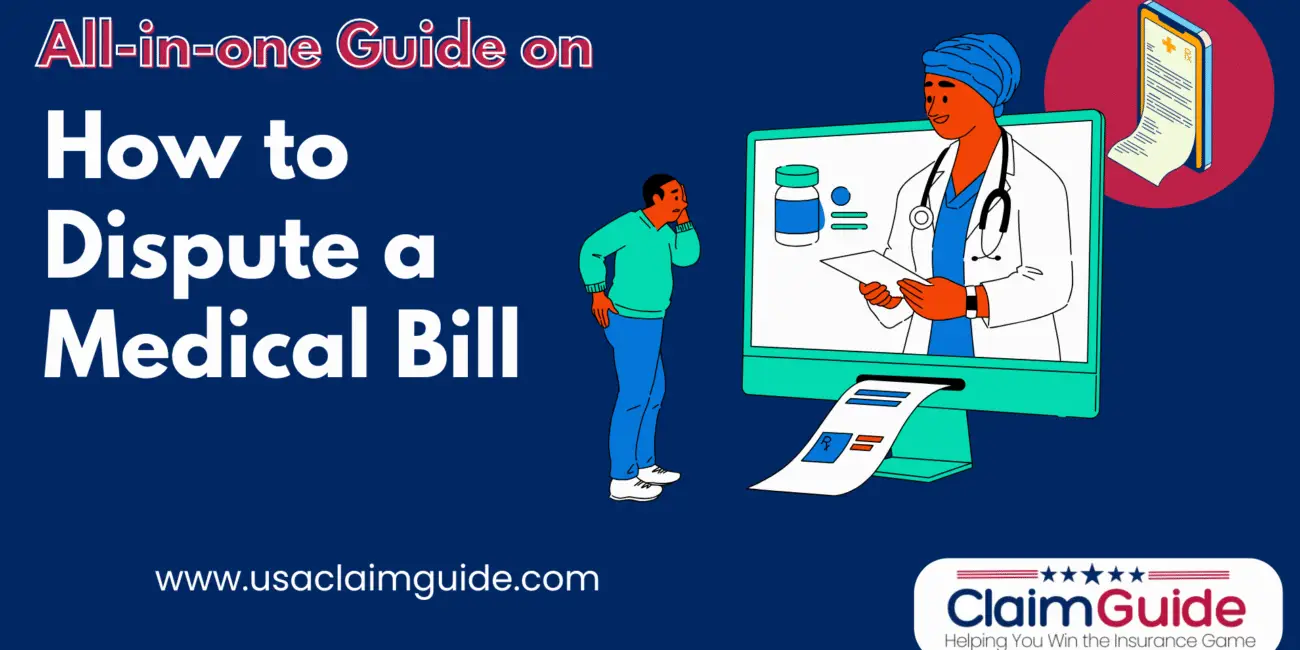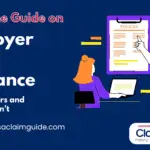In recent years, healthcare costs in the United States have risen dramatically leaving millions of Americans navigating a financial maze when it comes to paying for medical services. While health insurance is intended to shield individuals from overwhelming expenses, it often doesn’t prevent confusion, billing mistakes, or unexpected charges from slipping through the cracks. As a result, medical bill disputes in the U.S. have become increasingly common and, more importantly, necessary.
A growing number of patients are discovering billing discrepancies only after receiving massive invoices for hospital stays, surgical procedures, or even routine office visits. What was once accepted without question is now being scrutinized more carefully, and rightfully so. With the complexity of medical coding, the lack of pricing transparency, and varying insurance agreements, it’s not uncommon for errors to occur errors that could cost consumers thousands of dollars if left unchallenged.
In fact, industry studies have shown that a significant percentage of medical bills contain errors, ranging from incorrect procedure codes to duplicate charges. Yet, many people are unaware that they have the right and often, the responsibility to dispute these bills. This is especially true in the era of high-deductible health plans and out-of-network billing, where even a single line item can dramatically impact what you owe.
What’s more, the introduction of legislation like the No Surprises Act and updated credit reporting policies related to medical debt have empowered patients to take control of their financial healthcare experience. However, navigating the dispute process still requires a proactive mindset, patience, and a clear understanding of the steps involved.
Whether you’re insured, uninsured, or somewhere in between, understanding your rights and options is essential. Medical bill disputes are no longer rare exceptions they’re a practical tool for safeguarding your financial stability in a healthcare system that remains difficult to navigate.
Medical expenses in the United States can be overwhelming. From routine doctor visits to emergency treatments, costs can quickly escalate and sometimes, they come with errors. This is where the concept of a Medical Bill Dispute in the U.S. becomes critical. Whether it’s an incorrect charge, duplicate billing, or services you never received, disputing a medical bill can save you hundreds or even thousands of dollars.
This guide will walk you through everything you need to know about a Medical Bill Dispute in the U.S., including what it means, how to handle it with or without insurance, legal options, credit impact, and relevant resources.
What Does It Mean to Dispute a Medical Bill?
When you receive a medical bill that seems unusually high or doesn’t align with the services you received, it can trigger frustration and confusion. In such cases, disputing a medical bill in the U.S. healthcare system means taking formal steps to challenge charges that appear inaccurate, inflated, or unauthorized. It is a consumer-driven process aimed at verifying the legitimacy of the charges and holding medical providers or billing departments accountable for their financial records.
Unlike simply asking for clarification, a medical billing dispute is a structured challenge often requiring supporting documents, detailed communication, and sometimes escalation through legal or regulatory channels. It involves more than just questioning a bill; it’s about asserting your right to fair and transparent medical billing.
Why Disputing a Medical Bill Matters
Medical billing errors are surprisingly common. A report by the Medical Billing Advocates of America estimates that as many as 8 in 10 medical bills contain errors. These can range from simple typos to major overcharges due to incorrect procedure codes or services that were never rendered. The problem is exacerbated by the complexity of insurance policies, in-network vs. out-of-network pricing, and a general lack of price transparency in the healthcare system.
By initiating a dispute over a medical bill in the United States, you’re not only protecting yourself from paying unjust charges, but you’re also contributing to a more accountable billing process for all patients. This kind of consumer oversight is increasingly necessary in today’s healthcare landscape, where even small mistakes can result in serious financial strain.
The Role of Transparency and Accountability
Disputing a medical bill also pushes medical institutions toward greater accountability. Many billing departments operate with minimal scrutiny, especially when patients either accept their charges without question or don’t have the resources to investigate further. However, by exercising your right to dispute questionable charges, you’re demanding transparency and in doing so, encouraging better practices across the system.
Whether you’re dealing with an unexpected emergency room bill, a denied insurance claim, or an incorrect diagnostic code, understanding your right to dispute charges is the first step toward resolution.
To dispute a medical bill means to formally challenge a charge or set of charges listed on your bill that you believe are incorrect or unjustified. You may find charges for procedures you didn’t receive, billing errors, or inflated service costs.
Common reasons to dispute a medical bill include:
- Charges for services never provided
- Incorrect billing codes (leading to higher charges)
- Duplicate charges
- Out-of-network charges that should have been in-network
- Denied insurance claims that should have been approved
How to Dispute a Medical Bill
Here’s a step-by-step guide to initiating a Medical Bill Dispute in the U.S.:
1. Request an Itemized Bill
Start by requesting a detailed, itemized version of your medical bill. This breakdown will help you understand exactly what you’re being charged for.
2. Review the Bill Thoroughly
Go line-by-line and check for:
- Services you didn’t receive
- Repeated charges
- Incorrect dates
- In-network vs. out-of-network services
3. Compare with Your Insurance Explanation of Benefits (EOB)
If you have insurance, compare your bill with the EOB to see what was covered, denied, or partially paid.
4. Contact the Medical Provider’s Billing Department
Call the billing office to explain the discrepancies. Be polite, take notes, and always get the representative’s name and contact details.
5. File a Formal Dispute
If the issue isn’t resolved informally, submit a formal dispute in writing. This is where a dispute letter becomes important (more on that below).
Also Read: Top 7 Mistakes to Avoid When Filing a Health Insurance Claim

What Happens If You Dispute a Medical Bill?
Once you file a dispute:
- The provider or insurance company must investigate your claim.
- Billing collections are typically paused during the review process.
- If resolved in your favor, the bill may be adjusted, canceled, or reduced.
- If denied, you can appeal or seek legal advice.
Documents Needed to Dispute a Medical Bill
Having the right documentation increases your chances of a successful resolution. Here’s what you may need:
- Itemized bill from the provider
- Explanation of Benefits (EOB) from your insurer
- Insurance policy information
- Any correspondence or notes from phone calls
- Receipts of payments already made
- A copy of your dispute letter
How to Write a Dispute Letter for a Medical Bill Dispute
A well-crafted dispute letter is essential. Here’s what to include:
Sample Outline:
1. Your Information
- Full name
- Address
- Phone number
- Patient ID/account number
2. Provider’s Information
- Hospital/clinic name
- Billing department address
3. Subject Line
“Dispute of Medical Charges – Account #XXXX”
4. Body
- Clearly state which charges you’re disputing and why
- Mention any attached evidence
- Request a written response within 30 days
5. Closing
Include your contact information and a respectful closing.
Example:
Dear [Billing Department],
I am writing to formally dispute charges listed on my bill dated [MM/DD/YYYY], account #123456. Upon reviewing the itemized statement and comparing it with my insurance Explanation of Benefits, I found a $500 charge for a lab test that was neither performed nor covered by my provider.
I have attached the EOB and a copy of the bill for your reference. Please investigate and correct this error. I request a written response within 30 days.
Sincerely,
[Your Name]
[Your Contact Info]

How to Dispute Medical Bill with Insurance
- Call Your Insurer: Inquire why a claim was denied or why certain services weren’t covered.
- Submit an Appeal: If the denial seems incorrect, formally appeal the decision.
- Use Internal and External Review: First go through your insurer’s appeal process, then request an external review through your state’s insurance regulator if necessary.
- File a Complaint: If you believe your insurer is acting in bad faith, you can file a complaint with your state’s insurance department.
How to Dispute a Medical Bill Without Insurance
If you’re uninsured, you still have rights. Here’s how to handle a Medical Bill Dispute in the U.S. without insurance:
- Request Financial Assistance: Many hospitals have charity care or financial aid programs.
- Negotiate: Ask for a discount or payment plan which providers often have self-pay rates that are lower than billed rates.
- Dispute Unfair Charges: Challenge errors just as you would with insurance.
- Seek Help from a Medical Billing Advocate: These professionals specialize in reducing bills and finding billing errors.
How to Dispute Medical Bill Collections
If your bill has gone to collections:
- Validate the Debt: Ask for a debt validation letter within 30 days of first contact.
- Dispute Inaccuracies: If the bill is wrong, you can still dispute it. Notify both the collector and the original provider in writing.
- Don’t Ignore It: Ignoring a collection can harm your credit and may lead to legal action.
- Negotiate a Pay-for-Delete Agreement: In some cases, collectors will remove the account from your credit report if you pay the balance.
Also Read: Online Therapy Insurance in the USA: What You Need to Know Before You Book a Session
How to Dispute Medical Bill on Credit Report
Medical bills are now treated more leniently on credit reports, but they can still impact your score.
- Obtain Your Credit Report: Get a free copy from AnnualCreditReport.com.
- File a Dispute with Credit Bureaus: Contact Experian, Equifax, or TransUnion with supporting documentation.
- Send Written Dispute Letters: Include all supporting materials like EOBs, provider letters, and prior correspondence.
How to Legally Dispute a Medical Bill
Sometimes legal action is necessary. You can:
- File a complaint with your state’s attorney general or insurance commissioner.
- Take the provider to small claims court if your dispute remains unresolved.
- Hire a Medical Bill Dispute Attorney to represent you.
Medical Bill Dispute Attorney
When a billing dispute becomes complex, prolonged, or begins to impact your credit or legal standing, hiring a medical bill dispute attorney in the U.S. can be a strategic move. These legal professionals specialize in healthcare-related billing conflicts and can serve as powerful advocates when negotiations with hospitals, insurance providers, or debt collectors become overwhelming.
What Does a Medical Bill Dispute Attorney Do?
A qualified medical billing dispute lawyer does far more than write angry letters. They carefully analyze your medical records, billing statements, What Is an Explanation of Benefits (EOB) and Why It Matters for Your Health Insurance, and any correspondence to identify unlawful charges, double billing, or violations of federal consumer protection laws such as the Fair Debt Collection Practices Act (FDCPA) or the No Surprises Act.
In many cases, attorneys can negotiate reduced payments or complete dismissals of charges on your behalf. If the situation escalates such as a hospital filing a lawsuit or a collections agency pursuing aggressive legal action your attorney will represent you in court, file necessary counterclaims, and ensure that your rights as a patient and consumer are fully protected.
When Should You Hire a Medical Billing Attorney?
Not every billing dispute requires legal help, but there are scenarios where professional representation is critical. Consider hiring a medical bill negotiation attorney in the U.S. if:
- You’re being sued over a medical debt you believe is incorrect or inflated.
- Your bill includes charges for services you never received or that were improperly coded.
- A collections agency is threatening legal action or has already filed a lawsuit.
- Your dispute involves complicated insurance denial issues or coordination of benefits.
- You’ve been impacted by a surprise medical bill from an out-of-network provider.
- You’re unable to reach a resolution despite filing appeals or sending dispute letters.
In these cases, the value of legal representation often outweighs the cost, especially when large medical debts are involved.
How to Find the Right Medical Bill Dispute Lawyer
When searching for an attorney to dispute a hospital bill, look for professionals who specialize in healthcare law or consumer protection. Many states have bar associations with referral services that can help you connect with a lawyer experienced in medical billing disputes.
Also Read: Biggest Mistakes to Avoid When Filing a Life Insurance Claim
Do Medical Bill Attorneys Work with Uninsured Patients?
Yes, a lawyer for disputing medical bills without insurance can still assist. In fact, uninsured individuals are often more vulnerable to inflated hospital charges due to lack of negotiated rates. Attorneys can argue for reductions based on standard pricing benchmarks or even bring legal action under laws that prohibit excessive charges to self-pay patients.
If your case involves large sums or complex legal issues, a medical bill dispute attorney can help. They:
- Interpret medical billing codes and laws
- Represent you in court
- Negotiate with providers or insurance companies
- Ensure compliance with the No Surprises Act
You can find legal help through:
- National Association of Consumer Advocates
- Legal Aid Services in your state
Useful Links & Government Resources
Here are official resources related to Medical Bill Dispute in the U.S.:
- Centers for Medicare & Medicaid Services (CMS):
https://www.cms.gov - Consumer Financial Protection Bureau (CFPB) – Medical Debt:
https://www.consumerfinance.gov/medical-bills - No Surprises Act (HHS):
https://www.cms.gov/nosurprises - State Insurance Departments:
https://content.naic.org/state-insurance-departments - Annual Credit Report (Official site):
https://www.annualcreditreport.com
Conclusion
Navigating a medical bill dispute in the U.S. can feel like an uphill battle, especially when you’re already dealing with the stress of illness or recovery. But the reality is, you’re not powerless. Whether you’re insured, underinsured, or completely uninsured, you have the legal right to question any charges you believe are incorrect, inflated, or unjustified.
Understanding how to dispute a medical bill and knowing when to escalate the issue to your insurance provider, a collections agency, or even a medical bill dispute attorney can make a real difference in protecting your financial health. In many cases, simply being informed, organized, and persistent can lead to substantial reductions in what you owe, or even a full dismissal of the charges.
It’s also worth noting that you’re not alone. From consumer protection laws to nonprofit legal aid and patient advocacy groups, there are resources available to help you challenge unfair billing practices. Tools like Explanation of Benefits (EOBs), detailed billing statements, and dispute letters are your armor in this process.
Most importantly, remember this: Just because a bill arrives in your mailbox doesn’t mean it’s correct or that you have to pay it without question. Medical billing in the U.S. is complicated, but your right to challenge it is simple. Empower yourself with the right information, gather the necessary documents, and don’t hesitate to seek professional help when needed.











